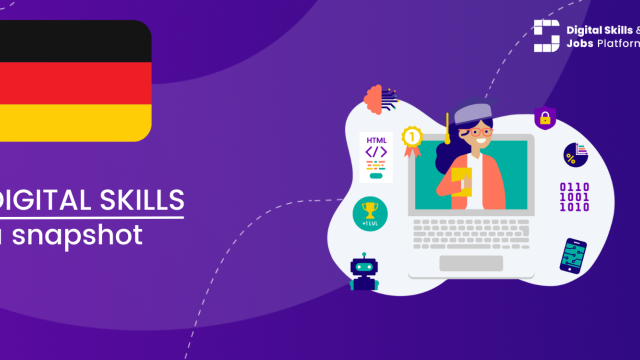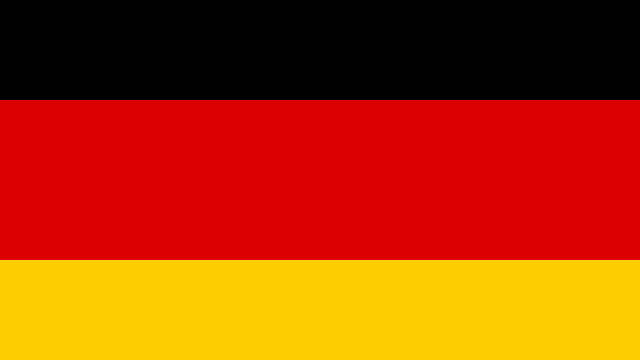Germany
In the 2025 edition of the Digital Decade report, new overall data is not available for 2024. Germany has achieved 52.2% basic digital skills coverage, compared to the EU average of 55.56%. This puts Germany at 65.3% of the overall target for the EU 2030 goal, which aims to have 80% of the EU population possessing at least basic digital skills. According to the Digital Decade report 2025, in Germany the percentage of ICT specialists in employment has slightly surpassed the EU average, increasing from 4.9% to 5.3% (EU average - 5%). The share of female s ICT specialists in Germany is 19.2%, just slightly below the EU's average 19.5%. Germany excels in the development of advanced technologies such as semiconductors and edge nodes. However, the country needs to improve in digital public services, digital skills, and coverage of high-capacity networks, including to further strengthen the solid performance in the uptake of digital technologies by businesses.
The German National Digital Decade strategic roadmap developed by the Federal Ministry for Digital and Transport of Germany sets out the strategic goals to be achieved by 2030, monitoring their achievement, and the target paths and key measures have been developed.
The National Continuing Education Strategy aims to increase participation in further training, especially for low-skilled individuals, with a focus on digital skills. The Federal Government's Digital Strategy outlines projects to improve digitization across different sectors and provide digital education opportunities.
The recovery and resilience plan includes investments in microelectronics, cloud infrastructures, online education platforms, and digital skills for teachers and the military. The "Building Continuing Education and Training Networks" program supports training for SME employees. Educational centres of excellence are launched under the leadership of the Federal Ministry of Education and Research and in cooperation with the Lände.
The Digital Pact for Schools aims to invest in modern digital educational infrastructure with a budget of EUR 5 billion between 2019 and 2024. As of 2022, around EUR 985 million has been invested in schools.
Germany ranks 19th out of the 27 EU Member States in the DESI dashboard for the Digital Decade for the 'At least basic digital skills' indicator, with 52.2% of its population possessing at least basic digital skills.







